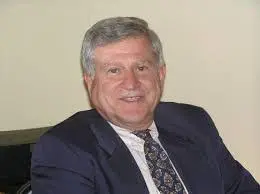



Whether New York State should convene a Constitutional Convention – a ballot issue that New Yorkers will decide in November – will be examined in a rescheduled talk by Canisius College Emeritus Professor Peter Galie on Thursday, Oct. 12.
The talk, “Calling a Constitutional Convention in New York: The Process and the Issues,” will be given in the Garden area of Reed Library at 3:30 p.m. Part of the Democracy 101 series supported by the Provost and Professional Development Center, the talk is sponsored by the Department of Politics and International Affairs and is free and open to students, faculty, staff and community members.
Dr. Galie is a former chair of the political science department at Canisius and the author of numerous articles dealing with state constitutional law. He has written or co-written two books, “Ordered Liberty: A Constitutional History of New York” (Fordham University Press, 1996) and “The New York Constitution: A Commentary,” 2nd ed., with Christopher Bopst (Oxford University Press, 2012), and co-edited, along with Gerald Benjamin and Mr. Bopst, “New York’s Broken Constitution: The Governance Crisis and the Path to Renewed Greatness” (SUNY Press, 2016).
Every 20 years, New York residents have the opportunity to vote whether they want a Constitutional Convention held to revise and amend the state’s founding document. Little interest to change the constitution has been expressed by voters in the last 50 years.
“We have had amendments, but proposals to alter the structure of the state government typically do not make it through the amendment process. A convention puts all issues on the table,” said Dr. Jonathan Chausovsky of the Department of Politics and International Affairs.
“Much opposition to calling a convention has centered on rights that would be subject to debate and change. Less attention has focused on structural issues,” Dr. Chausovsky noted.
Unlike the U.S. Constitution, the 50,000-word New York Constitution has much more to say about individual’s daily lives than its federal counterpart in voting, education, state and local finances, care for the needy and the mentally ill, and the environment, according to Galie.
“Moreover, the state’s Constitution gives New Yorkers the power to control their own destiny by establishing rights not recognized by the U.S. Constitution and instituting public policies independent of the actions of the federal government,” Galie said. It can be amended through a legislative amendment or a Constitutional Convention. In both scenarios, voter approval is ultimately required.
In a blog carried by the Rockefeller Institute of Government, a public policy research arm of SUNY, Galie and Bopst wrote that a convention is the only way to achieve meaningful and necessary solutions to the state’s systemic problems.
Earlier this summer, a New York Times writer suggested that some academics and government interest groups believe the outcome at the ballot may be different this year, speculating that the rise of Donald Trump to the White House may be a factor in some voters’ minds.
In that article, Galie said Trump’s election emphasizes how valuable it is for states to chart their own course. “We can put a right to clean air and water in our Constitution. If we want to add more labor protections, we can do it.”
A contrary opinion suggests that existing rights could be repealed as a result of a Constitutional Convention.
Campaigns for and against a Constitutional Convention, sometimes called a Con-Con, are anticipated.